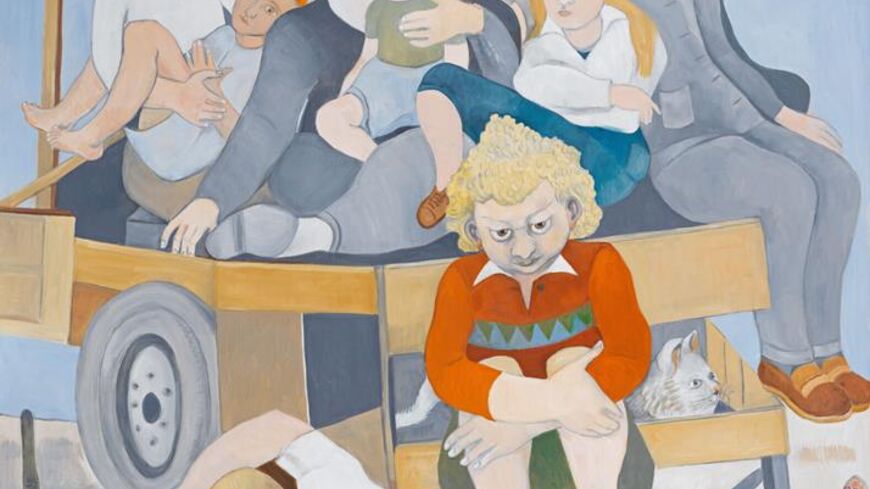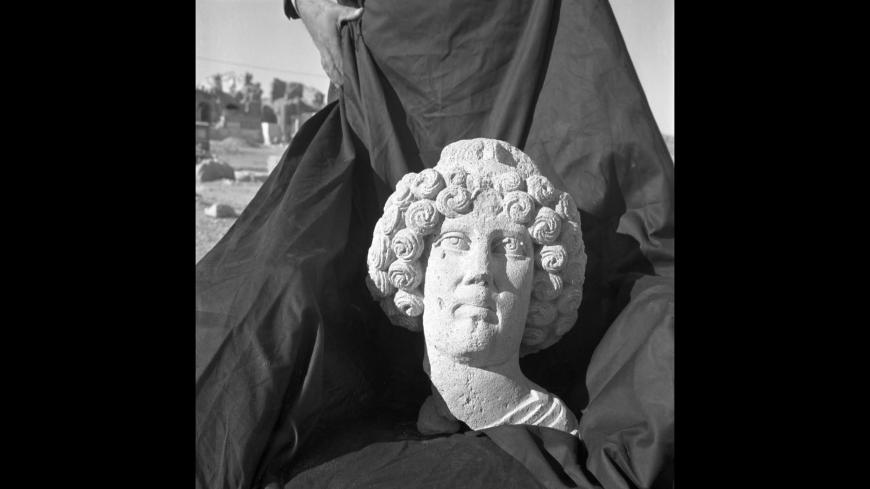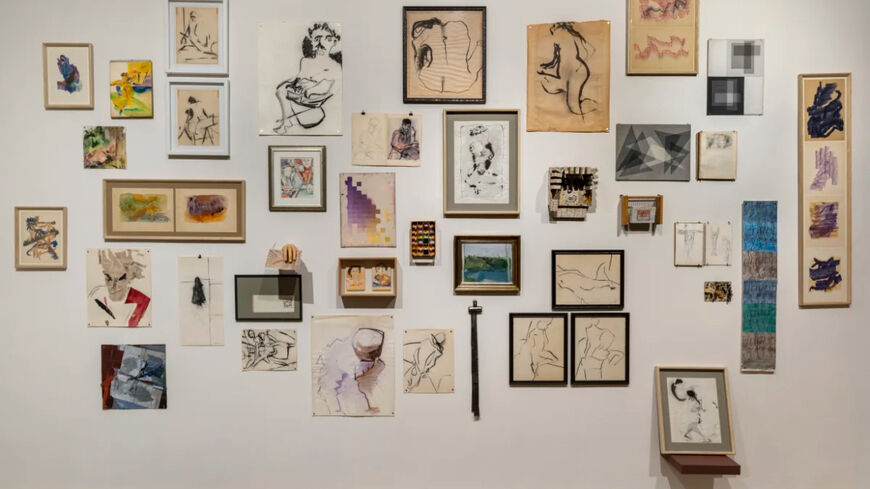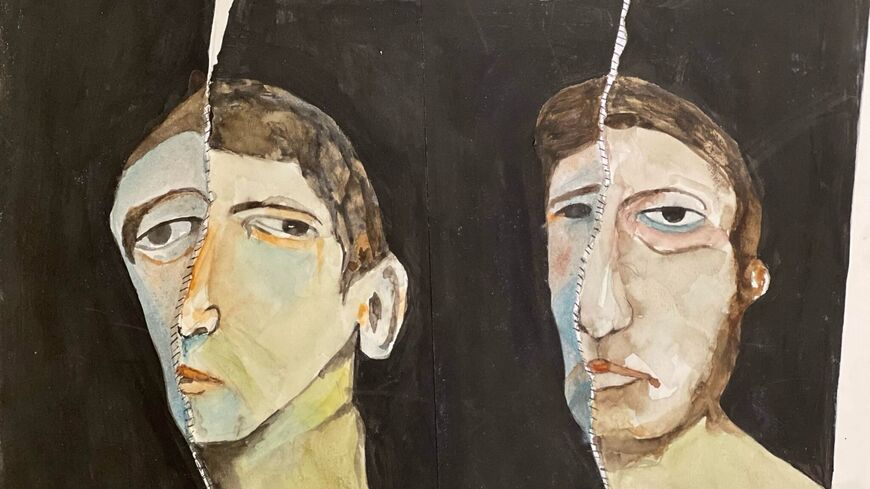AL-Monitor Istanbul: The women who shape the city
Istanbul and the world mark International Women’s Day, March 8, with a flurry of events.

You're reading AL-Monitor City Pulse — Istanbul, a weekly exploration of Istanbul’s vibrant arts and culture scene with insights on key social happenings and recommendations off the beaten path. To get this newsletter in your inbox each week, sign up for free here.
Unsurprisingly, this edition is dedicated to women, as Istanbul and the world mark International Women’s Day, March 8, with a flurry of events. We’re shining the spotlight on the women who shape Istanbul — as artists, chefs, writers and cultural masterminds. Also, for everybody filling in their social calendar as the snow melts, we’ve lined up the top concerts of the season.
Leading the week: Cats, women and the Istanbul Biennial
Istanbul is a city of cats and formidable women, and the 18th Istanbul Biennial, launching its first phase on Sept. 20, reflects just that. Under the guidance of the Lebanese curator Christine Tohme and director Kevser Guler, the biennial will channel resilience, transformation and a touch of mischief — much like the namesake of the event’s theme, “The Three-Legged Cat.”
“It is said that a cat has nine lives,” Tohme said at the press conference on Feb. 25. “A revered city dweller, the cat slips between gridlines, scavenges for the overlooked, and basks in the sun. Relying on wit and charm, it plays the unruly companion to neighbors and passersby.”
Tohme has spent decades building artistic communities through Ashkal Alwan, her Beirut-based nonprofit. She and Guler will ensure that the biennial lands firmly on its feet after being delayed a year.
The biennale’s majority-female advisory board includes Ahu Antmen, an academic and the newly appointed director of the Sabanci Museum, the artist Gozde Ilkin and Sally Tallant, director of the Queens Museum, New York.

“At-Home Day,” by Gozde Ilkin, whose fabric-and-embroidery works were exhibited at the 15th Istanbul Biennial (2017), returns this year as a jury member.
The first phase of the biennial, beginning later this year, will bring more than 40 artists together to tackle the themes of self-preservation and futurity through exhibitions, performances, and discussions. The second phase, in 2026, will focus on a series of public programs in collaboration with local initiatives. The third phase, in 2027, wraps up the biennial with an exhibition and workshop program highlighting themes and artworks presented and explored in the first two phases.
In a world battered by crisis, the 18th biennial asks two timely questions: How do we navigate fractured landscapes? How do we pivot, contort, and reclaim space?
Perhaps Istanbul’s enigmatic cats know the answer.
Word on the street: The girl who played with fire

Yaren Carpar, founder of Dafni Atesbasi, “manning” the grill. (Dafni Atesbasi website)
Grilling meat over an open flame has long been the sacred domain of men in Turkey. Enter Yaren Carpar, who decided that fire belongs to whoever wields it best. With Dafni Atesbasi, Turkey’s first woman-run ocakbasi (grill), Carpar takes charge of the fire, the kitchen and any challenges that come her way.
In May 2020, when Covid-19 brought a halt to the in-person cooking course Carpar taught for Kitchen of Hope, a Food and Agricultural Organization–sponsored project for Turkish and Syrian chefs, she took the classes online to prevent their culinary dreams from being snuffed out.
Then came Feb. 6, 2023, when a devastating earthquake struck Turkey. Within two days, Carpar and her colleagues had set up a relief kitchen in Hatay, her hometown, serving thousands of hot meals.
At Dafni Atesbasi, Carpar’s motto is “My grandfather’s grill, my grandmother’s mezzes.” The muhammara, a spicy walnut and red pepper dip made with chickpea flour instead of breadcrumbs, pays homage to her family's culinary tradition. Come hungry, and don’t leave without tasting the lamb karski and the celeriac salad. If you’re fasting, try the fast-breaking menu.
Location: Nakkastepe Yolu No: 56, Uskudar
Istanbul diary

Basak Doğan in concert at the Zorlu Center, 2024 (Basak Dogan Instagram)
Begum Tatari, a culture writer and general coordinator of the K2 Contemporary Art Center, has selected this season’s must-see concerts. Click on dates for tickets and additional information.
- Chromas, the contemporary choir founded by conductor Basak Dogan, celebrates its 10th anniversary with a special concert at the Zorlu PSM Turkcell Platinum Stage on March 15. Expect surprise collaborations from past musical partners.
- Ilhan Ersahin's Istanbul Sessions, once described as “what Radiohead would sound like if they played jazz,” returns to Blind Istanbul on April 9-10.
- Camerata Trajectina, known as the “Musical Treasury of the Netherlands,” celebrates its 50th anniversary on May 5 at the church of St. Antuan, with a program tracing the 17th-century traveler Gerard Hinlope's journey to Istanbul through period music.
- Marcin, the Polish guitarist with 3 million online followers, brings his percussive and fingerstyle technique to Turkey with performances in Ankara, Izmir, and Istanbul, May 14–16.
- Kings of Convenience, the Norwegian duo known for their soft and smooth tunes, will perform at KucukCiftlik Park on May 28. Pioneers of the “new acoustic movement,” their Istanbul concert will include accompaniment from a bassist and drummer.
Book of the week: “The Lost Word”

My reading list inevitably follows Turkey’s political agenda, so this week, Oya Baydar’s “The Lost Word” found its way to my bedside table.
The novel, whose English edition (2011) got a rave review from The Guardian, starts with the haunting Kurdish phrase “Zarok kustin” (They killed the child).
Adopting a polyphonic narrative, Oya Baydar interweaves the lives of a writer looking for a word, a Kurdish youth driven to rebellion but now wanting out, a girl trying to escape death at the hands of her brother, a foreigner shattered by a suicide bombing and a young man seeking refuge from his idealistic but exacting parents on a Norwegian island.
Baydar, a Turkish sociologist as well as a writer who lived in exile in Germany until 1992, challenges readers to confront the complexities of empathy, guilt, and just how far one can go in defending “the other.”
Istanbul gaze

A kite of Shahmaran — half woman, half snake — over the skies. (Courtesy of Zahit Mungan)
Zahit Mungan’s stunning kite masterpiece of 3,000 intricately assembled pieces of fabric and other materials is based on Shahmaran, his hometown Mardin’s legendary half-snake, half-woman figure who has inspired artists and writers for centuries. Mungan, who has competed in kite championships from Qatar to India, describes kites as the link between the earth and the sky.
By the numbers
- In Istanbul, 51% of women have completed a university degree (or higher), compared to 48% in Turkey overall, according to TURKSTAT, the official statistics agency.
- On the other hand, TURKSTAT reports that 86% of illiterate individuals in Istanbul are women, slightly higher than the nationwide figure of 85%, highlighting a persistent gender gap in literacy both in Istanbul and Turkey overall.




